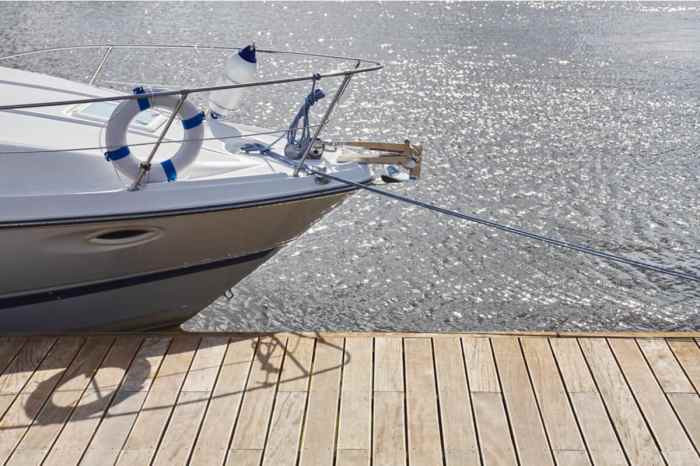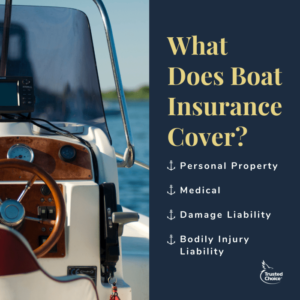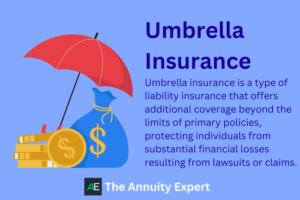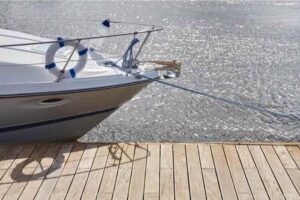
Boat insurance for full-time liveaboards is a critical aspect of living on the water, presenting unique challenges and considerations that every aspiring liveaboard should understand. As more people choose to make the open sea their home, navigating the complexities of insurance becomes essential to ensure safety, compliance, and peace of mind.
This guide will delve into the various types of coverage available for liveaboards, highlighting the importance of liability insurance and how it differs from traditional boat insurance, along with comparisons to other relevant insurance types.
Understanding Boat Insurance for Full-Time Liveaboards

For those who call the water their home, securing the right boat insurance is essential. Full-time liveaboards face unique challenges that extend beyond the typical concerns of recreational boat owners. The intricacies of living aboard a boat require specialized insurance solutions that accommodate the lifestyle, protecting both the vessel and the well-being of its occupants.Insuring a boat for full-time living comes with its own set of challenges and considerations.
Unlike traditional boat insurance, which primarily focuses on navigational risks and damage to the vessel, liveaboard insurance must account for the boat being a permanent residence. Factors such as the boat’s construction, intended usage, and geographic location all play critical roles in determining coverage options. Moreover, liveaboards often require additional protections against risks like personal property loss, liability, and even environmental hazards that standard policies may overlook.
Types of Coverage Available for Liveaboards
Understanding the different types of coverage options available for liveaboards is crucial to obtaining comprehensive protection. Here are the primary coverage types that should be considered:
- Hull Coverage: This covers damage to the boat’s structure, ensuring repairs or replacements are financially supported. Hull coverage is particularly important for full-time liveaboards who rely on their vessel for shelter.
- Content Coverage: This protects the personal belongings on board, including furniture, electronics, and clothing. Given that liveaboards often have significant personal property, this coverage is vital.
- Liability Coverage: Essential for protecting against claims for injuries or damages caused to others while on the water. This coverage is particularly pertinent for liveaboards who may interact more with other boaters and marinas.
- Emergency Coverage: This includes protections for costs related to emergencies like salvage, towing, or medical expenses arising from accidents at sea, which can be financially burdensome without proper coverage.
- Environmental and Pollution Coverage: Liveaboards must be aware of regulations concerning environmental protection, which may require specific coverages to address potential pollution or environmental damage claims.
The importance of liability coverage for liveaboards cannot be overstated. This coverage is designed to protect against claims for personal injury or property damage that may occur due to the liveaboard’s operations. Unlike traditional boat insurance, where liability may be limited to navigational incidents, liveaboard liability extends to everyday activities on the boat, including hosting guests or engaging in commercial activities.
Liability insurance should be robust enough to cover legal fees, court costs, and any settlements resulting from claims, which can be substantial in the event of an accident.
“For liveaboards, having comprehensive liability coverage is not just a precaution; it’s a necessity that provides peace of mind on the water.”
In conclusion, understanding the nuances of boat insurance for full-time liveaboards is vital for protecting both the vessel and its occupants. The unique challenges faced by liveaboards demand tailored coverage options that traditional boating insurance may not fully address. By focusing on the right types of coverage, liveaboards can enjoy their lifestyle with greater security and confidence.
Comparison of Related Insurance Types
Understanding the various types of insurance available is essential for full-time liveaboards. While boat insurance typically covers the vessel itself, other insurance types may address unique needs for those living on the water. This comparison will shed light on the differences between boat insurance, watercraft insurance, supplemental insurance, pet insurance integration, and the role of travel insurance in enhancing coverage for liveaboards.
Differences Between Boat Insurance, Watercraft Insurance, and Supplemental Insurance
Boat insurance is primarily designed to protect against loss or damage to the boat and its equipment. It often includes liability coverage in case of accidents that cause harm to others or their property. Watercraft insurance, on the other hand, usually encompasses a broader range of water vehicles, including jet skis and smaller personal watercraft. While it can cover damages similar to boat insurance, it is tailored for specific types of watercraft, providing specialized policies that might not apply to larger vessels.Supplemental insurance can fill gaps left by primary boat insurance policies.
It may include additional coverage for personal belongings, towing expenses, or specific incidents such as storms or vandalism. Full-time liveaboards often find that this type of insurance is crucial in safeguarding their lifestyle against unforeseen events.
Integration of Pet Insurance into a Liveaboard Lifestyle
For liveaboards who travel with pets, integrating pet insurance is a smart choice. This insurance covers veterinary expenses for pets while on the water, ensuring they receive necessary medical care without financial strain. Consider the following benefits of pet insurance for liveaboard lifestyles:
- Coverage for accidents and illnesses, allowing for prompt treatment.
- Access to a network of veterinarians, which is particularly useful while traveling.
- Reimbursement for emergency veterinary services that may arise in remote areas.
Having pet insurance not only ensures the health of furry companions but also provides peace of mind for liveaboards who consider their pets part of the family.
Relevance of Travel Insurance for Liveaboards
Travel insurance plays a vital role for liveaboards, complementing boat insurance by covering aspects that traditional policies might miss. While boat insurance is focused on the vessel, travel insurance can encompass trip cancellations, lost luggage, and personal liability while traveling.The following points illustrate the importance of travel insurance for liveaboards:
- Protection against trip cancellations due to unforeseen circumstances such as illness or natural disasters.
- Coverage for personal belongings, including electronic devices and necessary gear.
- Medical coverage when visiting remote locations, ensuring access to healthcare even outside home ports.
Travel insurance enhances the overall safety and security of the liveaboard experience, ensuring that unexpected events do not derail important plans.
“Coverage is key. The right mix of boat, travel, and supplemental insurance is essential for a smooth liveaboard experience.”
Additional Coverage Considerations for Liveaboards

Living on a boat full-time comes with unique challenges and risks that necessitate a comprehensive insurance strategy. Beyond standard boat insurance, liveaboards should consider various additional coverage options to protect against unforeseen events, ensuring both their vessel and personal assets are secured. This section will Artikel essential insurance types for full-time liveaboards, emphasizing the importance of umbrella insurance and vision insurance as part of a holistic protection plan.
Essential Insurance Types for Full-Time Liveaboards
To ensure comprehensive protection, it’s crucial for liveaboards to have a structured insurance plan that addresses various aspects of their lifestyle. Below is a checklist of essential insurance types that liveaboards should consider:
- Boat Insurance: Covers physical damage to the boat, liability protection, and any personal property on board.
- Umbrella Insurance: Offers additional liability coverage beyond standard boat insurance limits, protecting against large claims or lawsuits.
- Vision Insurance: Provides coverage for eye-related health issues, which can be particularly beneficial for those spending extended time outdoors.
- Health Insurance: Essential for personal medical needs, especially when living away from traditional healthcare facilities.
- Contents Insurance: Protects personal belongings onboard from theft, damage, or loss.
- Rental Insurance (if applicable): Covers rental income loss if leasing out the boat when not in use.
Having this coverage ensures that liveaboards are adequately protected against various risks associated with their unique living situation.
Benefits of Umbrella Insurance Policy
Umbrella insurance serves as a vital safety net for liveaboards, providing an extra layer of liability coverage that extends beyond the limits of primary boat insurance policies. This additional coverage is particularly beneficial in the event of severe incidents that could result in significant legal claims or liabilities.
“The peace of mind offered by umbrella insurance is invaluable, particularly for those exposed to higher risk due to their lifestyle choices.”
For instance, if a liveaboard is involved in an accident that results in substantial property damage or personal injury claims exceeding their boat insurance limits, umbrella insurance can cover the remaining costs. This is especially crucial when considering the higher likelihood of accidents on the water compared to land-based living.
Vision Insurance Options for Liveaboards
Vision insurance is another important consideration for full-time liveaboards, as maintaining eye health can be challenging in the marine environment. Exposure to sunlight, wind, and water can exacerbate vision problems, making regular eye care essential.There are several vision insurance options that may be advantageous for individuals living on the water:
- Routine Eye Exams: Coverage for annual eye exams to monitor and maintain eye health.
- Corrective Lenses: Benefits for glasses or contact lenses, which can be essential for daily navigation and safety.
- Emergency Eye Care: Coverage for urgent eye-related issues that may arise while away from conventional medical facilities.
- Discounts on Laser Surgery: Some plans offer discounts for corrective eye surgeries, which could be beneficial for long-term vision health.
Having vision insurance ensures that liveaboards can maintain their eye health while enjoying the unique lifestyle that comes with living on the water. The combination of these additional coverage considerations ensures that liveaboards can focus on their adventures with peace of mind, knowing they are well-protected.
End of Discussion
In summary, understanding boat insurance for full-time liveaboards is vital for anyone looking to embrace a life on the water. By considering the specific types of coverage needed, along with additional insurances like umbrella and vision insurance, you can create a robust safety net that protects you and your investment, allowing you to focus on enjoying your adventures at sea.
User Queries
What is liveaboard insurance?
Liveaboard insurance is specifically designed for individuals who live full-time on their boats, covering unique risks associated with this lifestyle.
Is liability coverage necessary for liveaboards?
Yes, liability coverage is crucial for liveaboards as it protects against claims resulting from accidents or damages caused to others while living on the water.
Can I insure my boat for personal belongings?
Some boat insurance policies may cover personal belongings, but it’s essential to check specific terms and consider additional coverage if needed.
How does umbrella insurance benefit liveaboards?
Umbrella insurance provides extra liability coverage beyond standard boat insurance, offering enhanced protection for liveaboards in various situations.
Is pet insurance relevant for liveaboards?
Yes, pet insurance can be relevant for liveaboards, especially for those traveling with pets, ensuring their health and well-being while on the water.





